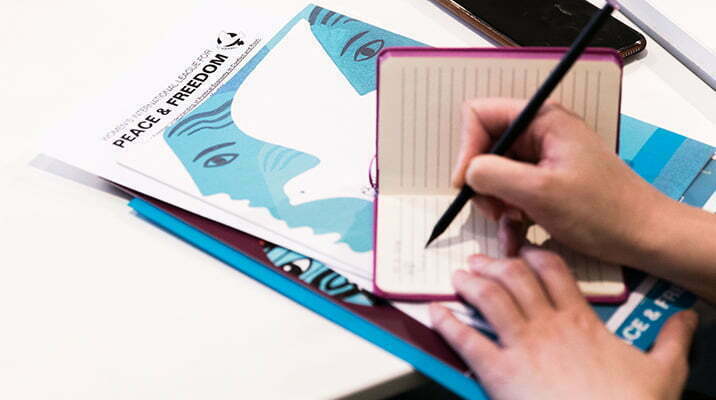Two reports for the upcoming session of the UN Human Rights Council (HRC35) [1] recommend stronger regulation of arms transfers to prevent human rights violations and humanitarian suffering. The UN Office of the United Nations High Commissioner for Human Rights (OHCHR) and the Special Rapporteur on extrajudicial, summary or arbitrary executions have released advanced versions of their reports Impact of arms transfers on the enjoyment of human rights [2] and A gender-sensitive approach to arbitrary killings [3], ahead of HRC35. The reports are scheduled for presentation to the Council on 12 June and 6 June, respectively.
The OHCHR report illustrates the impact of arms transfers on the enjoyment of human rights and reviews relevant international and regional legal frameworks, including guidance that exists on this subject from different human rights mechanisms. It puts forward a range of suggested “elements” for states and other stakeholders to use when assessing the relationship between arms transfers and human rights – which is an obligation under international law – and sets out nine conclusions and recommendations.
WILPF is among the civil society organizations that contributed to the report via a submission that highlighted in particular the role that arms transfers play in facilitating gender-based violence and identified key risk assessment questions for officials to ask when making a gender sensitive risk assessment of any potential arms transfer. This is a mandatory part of any risk assessment made by states that have joined the 2013 Arms Trade Treaty (ATT), an instrument that WILPF played a significant role in advocating for. The treaty’s inclusion of gender-based violence as a compulsory consideration in arms transfer decision-making is ground-breaking and historic, and is the result of dedicated advocacy and research by WILPF and others.
The OHCHR report reinforces the importance of this in many places. It explains clearly the many ways in which arms, and the arms trade, contribute to gender-based violence. It is very clear in outlining the role that the Committee on the Elimination of Discrimination against Women can, and has played, in consistently raising the issue of arms transfers.
In following up on this work, WILPF also recently participated in consultations held by Special Rapporteur on extrajudicial, summary or arbitrary executions in preparation for her report to HRC35. In addressing gender-based acts of violence and killings, the Special Rapporteur draws attention to the fact that patterns of harm from the use of explosive weapons in populated areas are shaped by issues of gender and age while the use of armed drones (and potentially autonomous weapon systems in the future) reinforce stereotypes of violent masculinities. She recommends that states “facilitate or undertake increased research on the gendered effects of the use of explosive weapons in populated areas, and support international efforts to develop a political commitment to end such use in order to preventing humanitarian suffering.” In addition to recommending that states “develop mechanisms to analyze whether any arms being assessed for approval for transfer, as well as the granting of licenses on production, will facilitate or contribute to gender-based violence or violence against women by the recipient, in accordance with the obligation on risk assessment processes of the Arms Trade Treaty.”
The release of these reports and convening of these meetings is timely. This week, the three working groups of the ATT are meeting in Geneva (29-31 May), followed by a Preparatory meeting on 1 June to plan for the treaty’s third Conference of States Parties (CSP3), which will take place in September. Sarah Boukhary, of WILPF’s Middle East and North Africa (MENA) project, made a presentation at a side event organized by UNIDIR and Small Arms Survey (SAS) on 30 May. In her presentation, she walked participants through the process of conducting a gender-sensitive risk assessment, as based on earlier WILPF resources.
While previous meetings of ATT states parties have made progress on some issues, politicization has prevented them from addressing current situations where arms transfers are continuing despite serious human rights concerns, such as to countries that are involved in the conflict in Yemen. These include notorious human rights abuser Saudi Arabia, with which President Trump has recently signed a massive arms deal. Therefore, WILPF is very pleased that human rights bodies are reminding governments of their responsibilities in relation to arms transfers. Action by human rights bodies will add an extra layer of accountability beyond the ATT and reinforce that human rights concerns must come ahead of profit in the arms trade.
WILPF urges the Human Rights Council to fulfill its mandate to prevent human rights violations and act on the recommendations in these reports. The Council should support a preventative approach aimed at stopping arms transfers where there is a risk that those arms will be used for serious violations or abuses of human rights, including gender-based violence.
ENDNOTES
[1] Geneva, 6 – 26 June 2017
[2] UN index: A/HRC/35/8, available at http://www.ohchr.org/EN/Issues/RuleOfLaw/Pages/ArmsTransfers.aspx
[3] UN Index : A/HRC/35/23, available at http://www.ohchr.org/EN/Issues/Executions/Pages/SRExecutionsIndex.aspx





